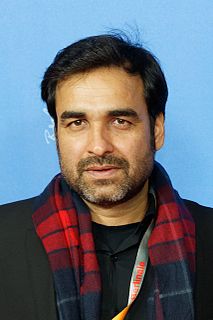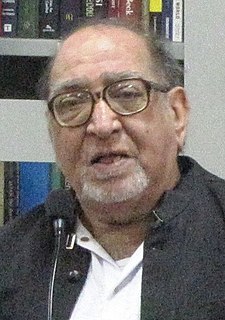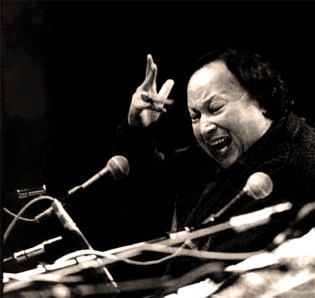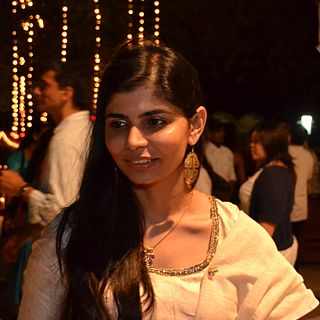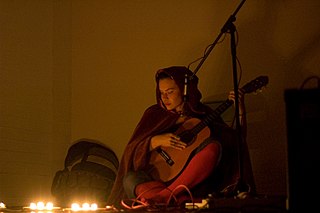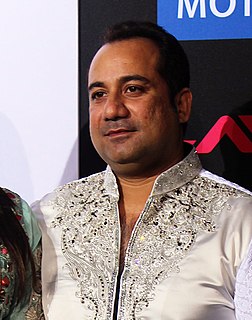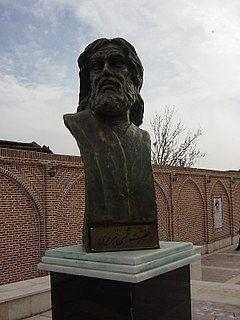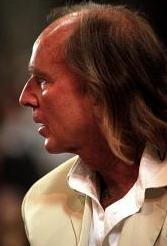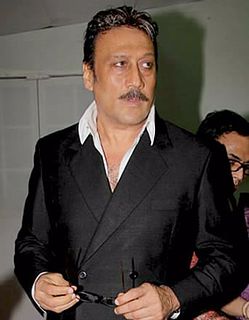Top 60 Sufi Quotes & Sayings
Explore popular Sufi quotes.
Last updated on April 14, 2025.
There is a Sufi trend, a madhabi Sufi trend, and I don't have any problem with this. What is not acceptable is that, first, some scholars are trying to show to the audience that they are open to other trends. However, when it comes to the retreat or the panels, they don't want to be with some of us because they are scared of being exposed.
Everyone in Iran is perceived to be a child with a paternal authority vested in the Guardian Council and the Sufi elders. They're supposed to be grateful. They can never for a moment not be afforded this wonderful protection. The father who will never go away. The father who will never quit caring for them.
The main problem is that most commentators are accustomed to thinking of spiritual schools as 'systems', which are more or less alike, and which depend upon dogma and ritual: and especially upon repetition and the application of continual and standardised pressures upon their followers.The Sufi way, except in degenerate forms which are not to be classified as Sufic, is entirely different from this.
We view Sufism not as an ideology that molds people to the right way of belief or action, but as an art or science that can exert a beneficial influence on individuals and societies, in accordance with the needs of those individuals and societies ... Sufi study and development gives one capacities one did not have before.
The Sufi saint Mazhar Jaan Jana of 18th century Delhi believed that the Quran condemns bowing before deities because in pre-Islamic idol worship stones were considered god. But Hindus pray to god through that idol, which is a reflection of god. In Vedas god is nirguna and nirankara, that is, he has no attributes and no shape, that is the real belief of Hindus. As Muslims visit graves, so Hindus worship idols.
The very essence of the Sufi spiritual tradition requires you to purify your heart, to liberate yourself from your ego and to be courageous in facing any corrupt power, injustice and oppression. Unfortunately, colonial powers pushed an agenda by using Sufism against resistance, and some ulama played that game in the past and in the present.
The great Sufi poet and philosopher Rumi once advised his students to write down the three things they most wanted in life. If any item on the list clashes with any other item, Rumi warned, you are destined for unhappiness. Better to live a life of single-pointed focus, he taught. But what about the benefits of living harmoniously among extremes? What if you could somehow create an expansive enough life that you could synchronize seemingly incongruous opposites into a worldview that excludes nothing?
In Sufi terms the crushing of the ego is called Nafs Kushi. And how do we crush it? We crush it by sometimes taking ourselves to task. When the self says, 'O no, I must not be treated like this,' then we say, 'What does it matter?' When the self says, 'He ought to have done this, she ought to have said that,' we say, 'What does it matter, either this way or that way? Every person is what he is; you cannot change him, but you can change yourself.' That is the crushing. ... It is only in this way that we can crush our ego.
Christian scholars often say that Sufi theories are close to those of Christianity. Many Moslems maintain that they are essentially derived from Islam. The resemblance of many Sufi ideas to those of several religious and esoteric systems are sometimes taken as evidence of derivation. The Islamic interpretation is that religion is of one origin, differences being due to local or historical causes.
it's about a love song to myself, and a love song to the universe, kind of like the way that Song of Solomon consists of love songs to God or like the way Sufi poems are erotic love songs to God, I kind of wanted something like that. Because I was getting to know myself more deeply at this point. I've always been on this track where I wanted to be enlightened.
Not Christian or Jew or Muslim, not Hindu, Buddhist, sufi, or zen. Not any religion or cultural system. I am not from the East or the West, not out of the ocean or up from the ground, not natural or ethereal, not composed of elements at all. I do not exist, am not an entity in this world or the next, did not descend from Adam or Eve or any origin story. My place is placeless, a trace of the traceless. Neither body or soul. I belong to the beloved, have seen the two worlds as one and that one call to and know, first, last, outer, inner, only that breath breathing human being.
In the district of Hizan, through the influence of Shaikh Abdurrahman Tagi, known as Seyda, so many students, teachers, and scholars emerged, I was sure all Kurdistan took pride in them and their scholarly debates and wide knowledge and Sufi way. These were the people who would conquer the face of the earth!
How did the Turks become Muslim? They became Muslim through the Sufis. The Arabs never conquered the Turks. There were people in early Islam who were speaking like Hallaj, who spoke about the Truth, about reaching the Truth, about being one with the Truth, and not only they were not killed, but they were great heroes of their own culture, and there is a university in Turkey named after one [Sufi Saint.]
His constant fight is with the Nafs (self-interest), the root of all disharmony and the only enemy of man. By crushing this enemy man gains mastery over himself; this wins for him mastery over the whole universe, because the wall standing between the self and the Almighty has been broken down. Gentleness, mildness, respect, humility, modesty, self-denial, conscientiousness, tolerance and forgiveness are considered by the Sufi as the attributes which produce harmony within one's own soul as well as within that of another.
A Sufi mystic who had always remained happy was asked.... For seventy years people had watched him, he had never been found sad. One day they asked him, 'What is the secret of your happiness?' He said, 'There is no secret. Every morning when I wake up, I meditate for five minutes and I say to myself, 'Listen, now there are two possibilities: you can be miserable, or you can be blissful. Choose.' And I always choose to be blissful.'
Like the bat, the Sufi is asleep to 'things of the day' - the familiar struggle for existence which the ordinary man finds all-important - and vigilant while others are asleep. In other words, he keeps awake the spiritual attention dormant in others. That 'mankind sleeps in a nightmare of unfulfillment' is a commonplace of Sufi literature
When [Allen] Ginsberg and I founded the Jack Kerouac School of Disembodied Poetics - that was 1974 - we referred to it by a term used by Sufi thinker Hakim Bey, as "temporary autonomous zones." That for me sums up some of Whitman's sense of a community of likeminded people with a certain kind of adhesiveness and connection and sharing of this ethos.
Whatever happens in your life, no matter how troubling things might seem, do not enter the neighbourhood of despair. Even when all doors remained closed, God will open up a new path only for you. Be thankful! It is easy to be thankful when all is well. A Sufi is thankful not only for what he has been given but also for all that he has been denied.
My mother's belief in spiritual healers grew stronger after our family went through a rough patch following my father's death. Sufi saint Karimullah Shah Kadri changed our lives, and all of us converted to Sufism. But it wasn't an instantaneous decision - it took us 10 years to convert. The change in religion was like washing away the past.
When I talk of primordial innocence, I hear it in Sufi music with the nay flute. I see it in Coptic icons, in most traditional art, particularly art of the American Indian. I find the texts extraordinarily beautiful and very childlike and very simple. I've been particularly interested in American Indian texts.
A handful of men working within the Zen sect of Buddhism created gardens in fifteenth-century Japan which were, and still are, far more than merely an aesthetic expression. And what is left of the earlier Mogul gardens in India suggests that their makers were acquainted with what lay behind the flowering of the Sufi movement in High Asia and so sought to add further dimensions to their garden scenes.
Scholars of the East and West have heroically consecrated their whole working lives to making available, by means of their own disciplines, Sufi literary and philosophical material to the world at large. In many cases they have faithfully recorded the Sufis' own reiteration that the Way of the Sufis cannot be understood by means of the intellect or by ordinary book learning.










